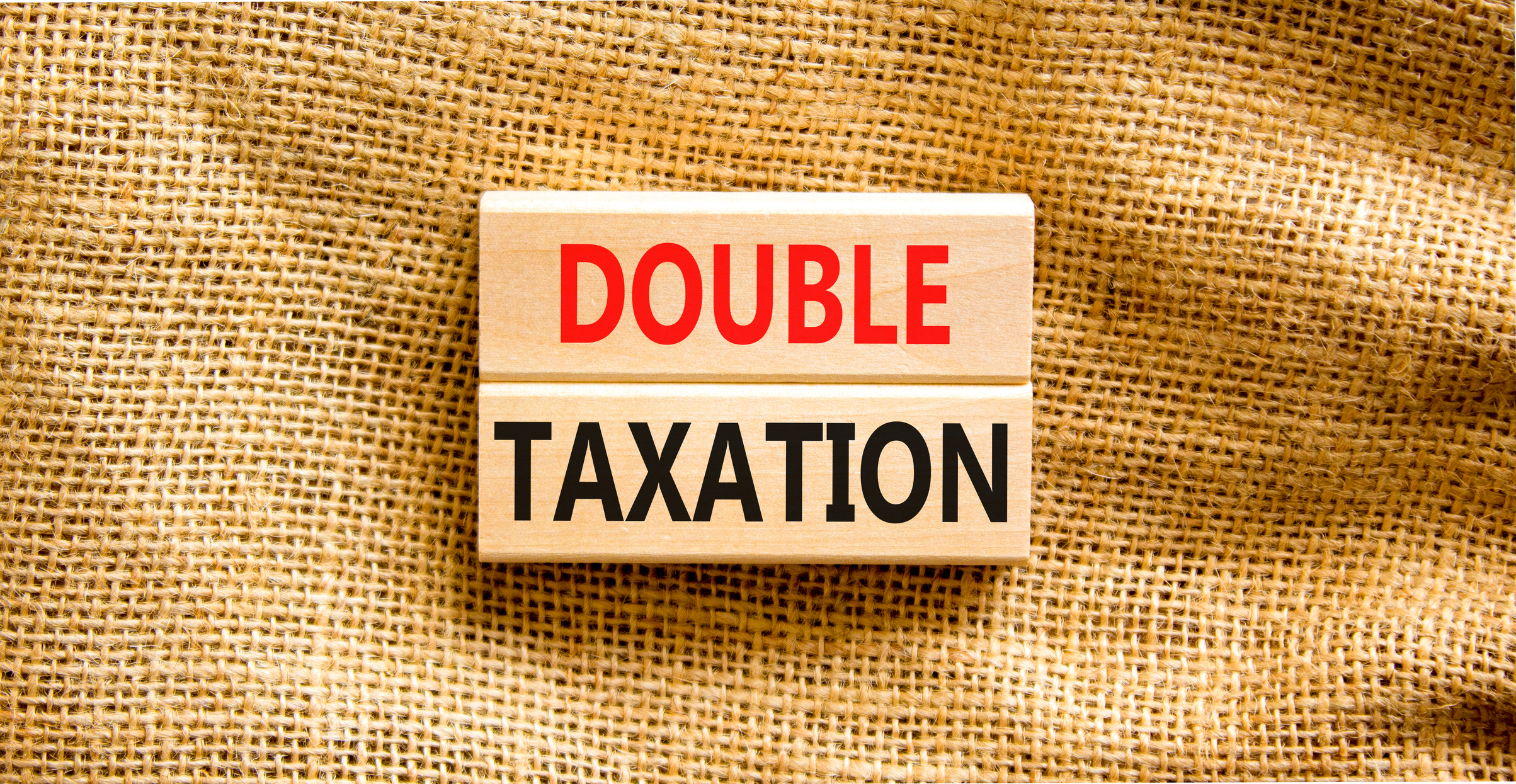Child Tax Credit 2025 and 2026: How Much Is It and What's Changed?
Here's what you need to know about the federal child tax credit (CTC) for 2025 and 2026.


Profit and prosper with the best of Kiplinger's advice on investing, taxes, retirement, personal finance and much more. Delivered daily. Enter your email in the box and click Sign Me Up.
You are now subscribed
Your newsletter sign-up was successful
Want to add more newsletters?

Delivered daily
Kiplinger Today
Profit and prosper with the best of Kiplinger's advice on investing, taxes, retirement, personal finance and much more delivered daily. Smart money moves start here.

Sent five days a week
Kiplinger A Step Ahead
Get practical help to make better financial decisions in your everyday life, from spending to savings on top deals.

Delivered daily
Kiplinger Closing Bell
Get today's biggest financial and investing headlines delivered to your inbox every day the U.S. stock market is open.

Sent twice a week
Kiplinger Adviser Intel
Financial pros across the country share best practices and fresh tactics to preserve and grow your wealth.

Delivered weekly
Kiplinger Tax Tips
Trim your federal and state tax bills with practical tax-planning and tax-cutting strategies.

Sent twice a week
Kiplinger Retirement Tips
Your twice-a-week guide to planning and enjoying a financially secure and richly rewarding retirement

Sent bimonthly.
Kiplinger Adviser Angle
Insights for advisers, wealth managers and other financial professionals.

Sent twice a week
Kiplinger Investing Weekly
Your twice-a-week roundup of promising stocks, funds, companies and industries you should consider, ones you should avoid, and why.

Sent weekly for six weeks
Kiplinger Invest for Retirement
Your step-by-step six-part series on how to invest for retirement, from devising a successful strategy to exactly which investments to choose.
The federal child tax credit (CTC) is a key benefit that helps families offset the costs of raising children.
For years, data show that the CTC has provided tax relief to millions of households, with eligibility based on income, filing status and the number of qualifying children. The credit is partially refundable, meaning some families can receive a refund even if their tax bill is low or zero.
For the 2025 tax year, the CTC is seeing changes as part of President Donald Trump’s tax and spending bill, often referred to as the One Big Beautiful Bill. The legislation, enacted on July 4, 2025, increases the maximum credit from $2,000 to $2,200 per child and indexes the amount to inflation.
From just $107.88 $24.99 for Kiplinger Personal Finance
Become a smarter, better informed investor. Subscribe from just $107.88 $24.99, plus get up to 4 Special Issues

Sign up for Kiplinger’s Free Newsletters
Profit and prosper with the best of expert advice on investing, taxes, retirement, personal finance and more - straight to your e-mail.
Profit and prosper with the best of expert advice - straight to your e-mail.
However, new rules also tighten eligibility by requiring that both the parent (and spouse, if filing jointly) and the child have a Social Security number to claim the credit. This shift might affect some immigrant and mixed-status families.
Here’s what you need to know about the enhanced federal child tax credit and how the latest changes could impact your family’s finances.
Related: The IRS has released 2026 amounts for the CTC and other family tax credits. Read on to learn more.
Overview
How does the federal child tax credit (CTC) work?
The federal child tax credit is a key tax break that provides qualifying households up to $2,200 per child under 17.
While your eligibility depends on your income, child's age, and other factors — you might be able to claim this benefit even if you aren't required to file a tax return.
- As a partially refundable tax credit, if the CTC exceeds taxes owed, families might receive up to $1,700 per child as a refund for the 2025 tax year. This portion is called the Additional Child Tax Credit.
- Taxpayers might qualify for the full amount for each child if they earn $200,000 as an individual filer or $400,000 for joint filers. The credit phases out completely for incomes above that threshold.
The child tax credit has reportedly supported as many as 40 million U.S. families each year. This figure might be impacted due to new Social Security Number (SSN) requirements implemented by Trump’s new 2025 tax law. (More on that below).
Child Tax Credit 2025
What is the maximum Child Tax Credit amount per child for tax year 2025?
- The maximum CTC amount is up to $2,200 per qualifying child.
- The refundable portion of the CTC is up to $1,700 for the 2025 tax year (returns you'll file in early 2026).
Note: The refundable portion is indexed to inflation. It might increase slightly annually. But for your 2025 federal income tax return, the refundable portion remains unchanged from the previous year, while the maximum full credit amount increased by $200.
Additional Child Tax Credit
Is the Child Tax Credit refundable? What is the maximum refund amount?
Your child tax credit can lower your tax liability this year by up to $2,200 per qualifying child. However, this tax credit isn’t refundable.
That means if you owe less than $2,200 in taxes, you won’t get the unused portion of the credit as a refund.
However, the additional child tax credit (ACTC) allows you to receive up to a maximum of $1,700 per child as a refund this upcoming tax season. You can receive the maximum amount of the ACTC after your tax bill is reduced to zero.
If you want to find out your CTC amount before you file, you can calculate this using the IRS' Interactive Tax Assistant tool online.
Child Tax Credit 2026
As mentioned, the IRS recently announced 2026 inflation adjustments for the child tax credit and several other popular family tax credits.
For 2026 (returns you'll typically file in early 2027), the maximum credit will remain at $2,200 per qualifying child, and the refundable portion of the CTC will stay at up to $1,700 per child.
Going forward, due to the new GOP 2025 tax bill, the full CTC amount will be indexed to inflation, not just the refundable portion.
For more information, see: IRS Reveals Family Tax Credit Amounts for 2026.
How to Qualify for the CTC
Child tax credit qualifications
Not everyone will qualify for the child tax credit, and your income isn’t the only determining factor. The Trump administration just tightened eligibility requirements; now, parents and children must have a Social Security Number (SSN) to qualify for the credit in 2025.
The following must apply for your household to qualify for the CTC:
Age: The child must be age 17 or under by the end of the year.
Relationship: The child must be your son, daughter, stepchild, eligible foster child, brother, sister, stepbrother, stepsister, half-brother, half-sister or a descendant of one of these (for example, a grandchild).
Financial support: Children can't provide more than half their financial support during the year.
Residency: Children claimed under the CTC must live with you for half a year or more.
Dependent status: The child must be claimed as a dependent on your tax return.
Citizenship: The child must have been a U.S. citizen, U.S. national, or U.S. resident alien during the tax year. For the first time, single parents who don’t have a Social Security number do not qualify. That means, if a parent does not have a SSN but a child does, that child does not qualify for the child tax credit.
Income: Parents or guardians can't exceed certain income limits. The credit amount is reduced depending on income until it phases out completely.
What are the Social Security Number (SSN) requirements for the Child Tax Credit?
New 2025 Trump/GOP tax law rules have tightened identification requirements.
For the child: The child must now have a valid Social Security Number issued by the due date of the tax return. An Individual Taxpayer Identification Number (ITIN) isn't enough for the child to qualify for the $2,200 credit.
For the parents: The taxpayer claiming the credit (and their spouse, if filing jointly) must also now have a valid SSN.
Mixed-status impact: Under the new tax law, if a parent uses an ITIN rather than an SSN, the family is generally ineligible for the CTC, even if the child has a valid SSN. In the case of a joint return, at least one spouse must have a valid SSN.
Child tax credit qualifying income

The child tax credit amount you can expect on your refund will depend on your modified adjusted gross income (MAGI).
Once your income reaches a certain limit, the credit amount will decrease or completely phase out.
The credit amount will be reduced by $50 for every $1,000 above your income cap.
For instance, your child tax credit will begin to phase out once your MAGI exceeds:
- $200,000 for a single filer, head of household, or qualifying widower.
- $400,000 for those married filing jointly.
- $200,000 for those married, filing separately.
Child tax credit for nonfilers:
Just as the CTC has a phase-out threshold, it also has a phase-in amount.
To qualify for the credit, families must earn at least $2,500 per year, and the CTC then phases in a rate of 15% per dollar earnings above that amount.
Additionally, if you have three or more qualifying children, you might be eligible for other tax breaks such as the Earned Income Tax Credit (EITC).
How to Claim the Child Tax Credit
Claiming the CTC
You can claim the child tax credit by entering your children or dependents on your federal income tax return (Form 1040). You’ll attach a completed Schedule 8812 (Credits for Qualifying Children and Other Dependents).
That IRS form will also help you determine how much of the CTC you’re eligible for and if you will receive additional tax credits. (Note: If you use tax software, the system will walk you through this with prompts. If you use a tax preparer, they will handle this for you.)
Related
Profit and prosper with the best of Kiplinger's advice on investing, taxes, retirement, personal finance and much more. Delivered daily. Enter your email in the box and click Sign Me Up.

Gabriella Cruz-Martínez is a finance journalist with 8 years of experience covering consumer debt, economic policy, and tax.
Gabriella’s work has also appeared in Yahoo Finance, Money Magazine, The Hyde Park Herald, and the Journal Gazette & Times-Courier.
As a reporter and journalist, she enjoys writing stories that empower people from diverse backgrounds about their finances, no matter their stage in life.
-
 Quiz: Do You Know How to Avoid the "Medigap Trap?"
Quiz: Do You Know How to Avoid the "Medigap Trap?"Quiz Test your basic knowledge of the "Medigap Trap" in our quick quiz.
-
 5 Top Tax-Efficient Mutual Funds for Smarter Investing
5 Top Tax-Efficient Mutual Funds for Smarter InvestingMutual funds are many things, but "tax-friendly" usually isn't one of them. These are the exceptions.
-
 AI Sparks Existential Crisis for Software Stocks
AI Sparks Existential Crisis for Software StocksThe Kiplinger Letter Fears that SaaS subscription software could be rendered obsolete by artificial intelligence make investors jittery.
-
 How to Open Your Kid's $1,000 Trump Account
How to Open Your Kid's $1,000 Trump AccountTax Breaks Filing income taxes in 2026? You won't want to miss Form 4547 to claim a $1,000 Trump Account for your child.
-
 In Arkansas and Illinois, Groceries Just Got Cheaper, But Not By Much
In Arkansas and Illinois, Groceries Just Got Cheaper, But Not By MuchFood Prices Arkansas and Illinois are the most recent states to repeal sales tax on groceries. Will it really help shoppers with their food bills?
-
 7 Bad Tax Habits to Kick Right Now
7 Bad Tax Habits to Kick Right NowTax Tips Ditch these seven common habits to sidestep IRS red flags for a smoother, faster 2026 income tax filing.
-
 New Plan Could End Surprise Taxes on Social Security 'Back Pay'
New Plan Could End Surprise Taxes on Social Security 'Back Pay'Social Security Taxes on Social Security benefits are stirring debate again, as recent changes could affect how some retirees file their returns this tax season.
-
 Living in One State, Working in Another: How to Avoid a Tax Season Headache
Living in One State, Working in Another: How to Avoid a Tax Season HeadacheState Tax Living and working in two states can take a heavy toll on your paycheck and give you a headache come tax time. Here's what to know.
-
 Inherited an IRA? Don't Fall Into the 10-Year Tax Trap
Inherited an IRA? Don't Fall Into the 10-Year Tax TrapRules on inherited IRAs have tightened, and most non-spouse beneficiaries must empty the pot in 10 years or face stiff penalties. That calls for an action plan.
-
 10 Cheapest Places to Live in Colorado
10 Cheapest Places to Live in ColoradoProperty Tax Looking for a cozy cabin near the slopes? These Colorado counties combine reasonable house prices with the state's lowest property tax bills.
-
 New Gambling Tax Rule Impacts Super Bowl 2026 Bets
New Gambling Tax Rule Impacts Super Bowl 2026 BetsTaxable Income When Super Bowl LX hype fades, some fans may be surprised to learn that sports betting tax rules have shifted.
